Are you looking to form a solid logistics partnership that enhances your business operations? It's essential to have a well-structured agreement that clearly outlines roles, responsibilities, and expectations. This letter template can serve as a valuable resource, ensuring both parties are aligned and ready to achieve mutual success. Dive into the details and discover how you can strengthen your logistics collaboration by reading more!
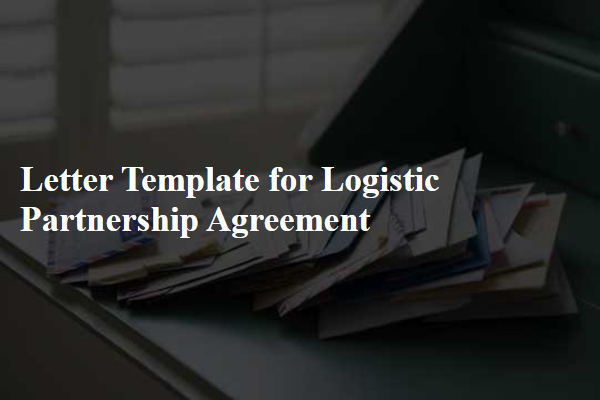
Parties Involved and Contact Information
A logistics partnership agreement typically involves multiple key parties, each playing a vital role in the supply chain. The primary participants may include a logistics service provider, which is an organization seasoned in managing supply chains, transportation, and warehousing, and a partnering company, which could be a manufacturer or retailer in need of those logistics services to ensure efficient distribution of goods. Contact information for each entity must be detailed to facilitate seamless communication. Essential details for each party should include the company's official name, physical address for deliveries, primary contact person's name, direct phone number, and email address, allowing for expedient collaboration and response to operational needs. Proper documentation ensures clarity and promotes a strong working relationship between all involved entities.
Scope of Partnership and Services
The logistics partnership agreement defines the scope of collaboration between two entities, such as ABC Logistics and XYZ Enterprises. This agreement encompasses services including transport management, warehousing solutions, and supply chain optimization. ABC Logistics, located in Chicago, Illinois, will provide freight services across major highways, while XYZ Enterprises will manage inventory tracking, ensuring timely delivery of goods. The partnership aims to enhance operational efficiency, reduce costs, and improve customer satisfaction. Each entity will share critical data regarding shipment status, inventory levels, and demand forecasting to streamline processes. Regular performance evaluations will take place quarterly, facilitating continuous improvement in service delivery. Responsibilities for regulatory compliance, including safety standards and environmental regulations, will also be clearly articulated to ensure adherence to industry norms.
Terms and Conditions of Agreement
The logistics partnership agreement outlines essential terms and conditions establishing a collaborative framework between entities like Firm A and Firm B for transporting goods efficiently. Key components include responsibilities regarding delivery timelines, adherence to safety regulations, and compliance with applicable laws, such as the Shipping Act of 1984 in the United States. Financial arrangements, including payment terms and potential penalties for late shipments, are emphasized, particularly focusing on the agreed rates per mile or weight scale. Confidentiality clauses protect sensitive information exchanged during the operation, ensuring that proprietary methods or trade secrets are safeguarded. The agreement also delineates dispute resolution mechanisms, such as mediation procedures in locations like Atlanta, Georgia, to resolve conflicts amicably. Regular reviews and performance evaluations are scheduled quarterly to assess service levels, responsiveness, and overall partnership efficiency, fostering continuous improvement and mutual growth in the logistics industry.
Roles and Responsibilities
In a logistics partnership agreement, clear definitions of roles and responsibilities are crucial for effective collaboration between partners. The logistics company, responsible for warehousing and transportation, must ensure timely delivery of goods within specified geographic areas (such as urban centers or rural regions). The manufacturing partner is tasked with quality control and timely production of products, adhering to industry standards (such as ISO certifications). Communication protocols should include regular scheduling of meetings (quarterly or monthly) to assess supply chain efficiency and resolve issues. Risk management responsibilities must delineate the assessment of potential disruptions (natural disasters, geopolitical events), along with contingency planning to minimize impact on operations. Each party should also be accountable for compliance with local regulations and environmental guidelines, safeguarding legal and ethical standards in operations.
Confidentiality and Data Protection
Confidentiality and data protection are critical components of any logistics partnership agreement. The agreement should outline the parties' commitment to safeguarding sensitive information, such as operational strategies, client details, and proprietary technologies. Compliance with data protection laws, like the General Data Protection Regulation (GDPR) for European entities, is essential to avoid substantial fines and reputational harm. Each party must implement robust security measures (e.g., encryption protocols and access controls) to prevent unauthorized access to confidential data. Specific terms for data sharing, usage limitations, and duration of confidentiality obligations should also be detailed to ensure both parties maintain integrity and trust throughout the partnership. Regular audits and assessments of compliance practices may further enhance collaboration stability, ensuring all data protection standards are upheld throughout the partnership.

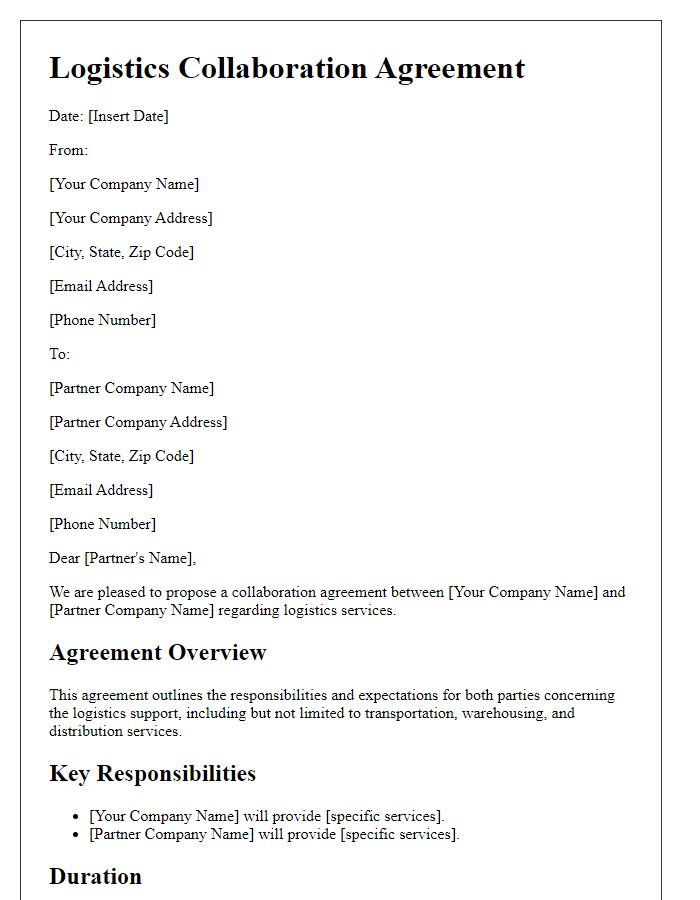
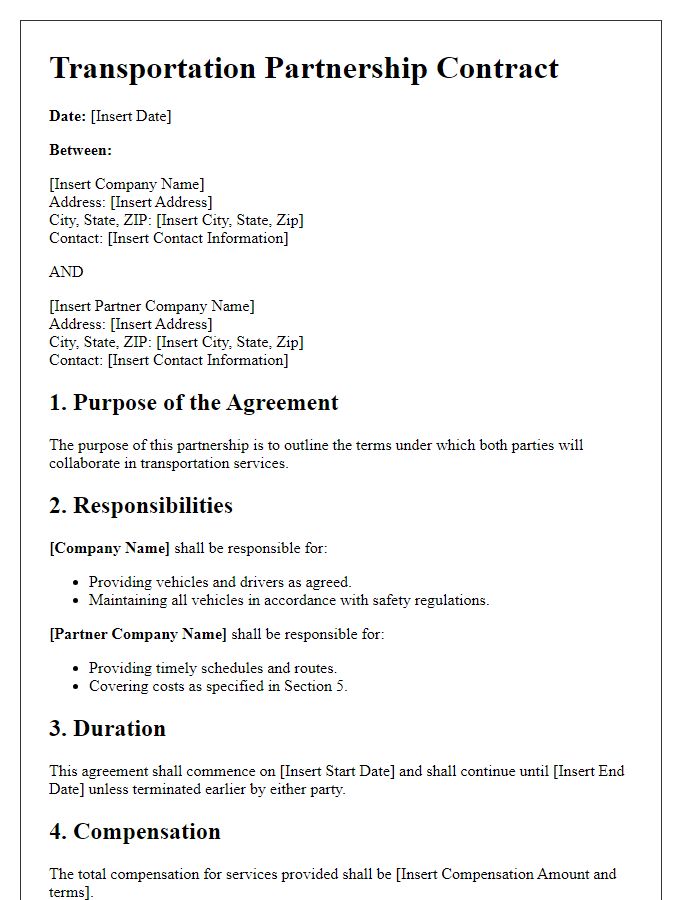
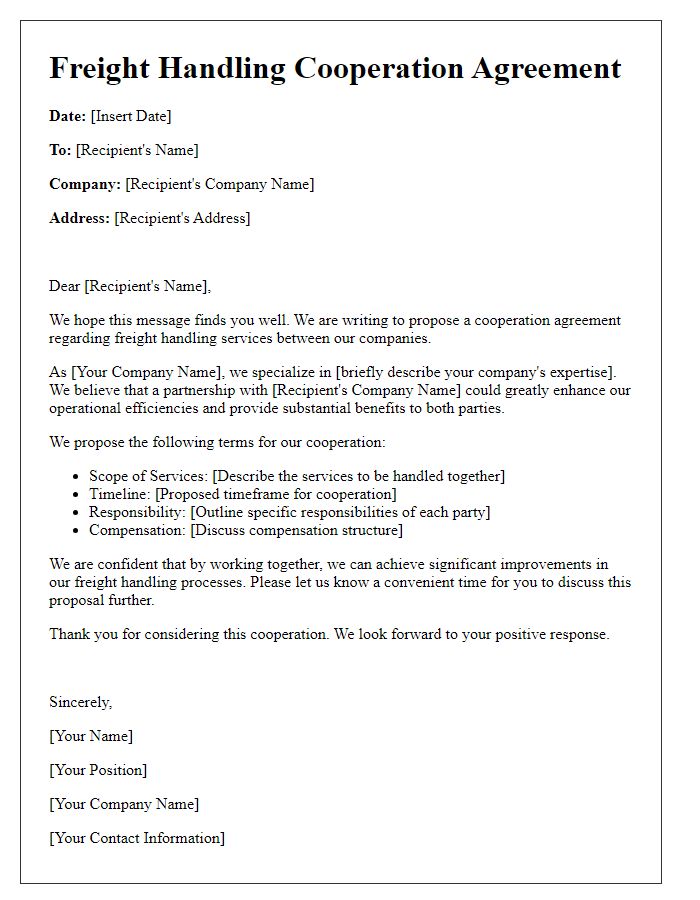
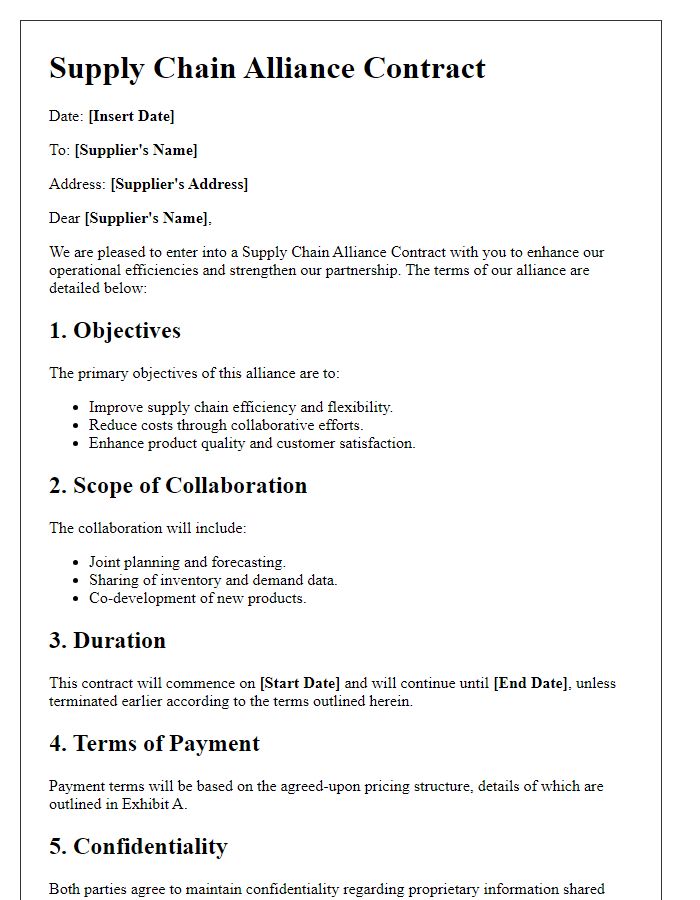
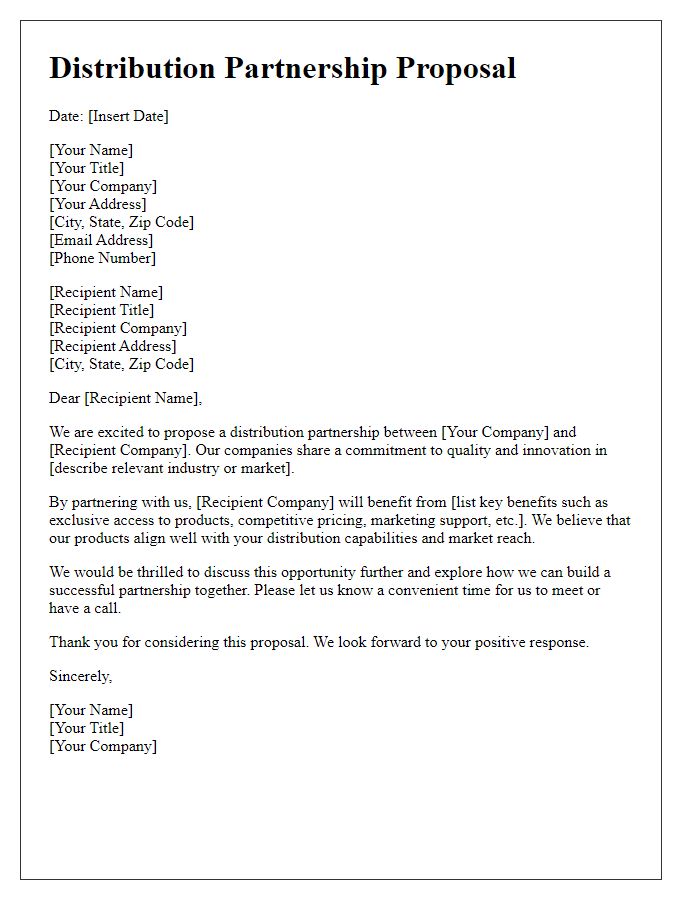
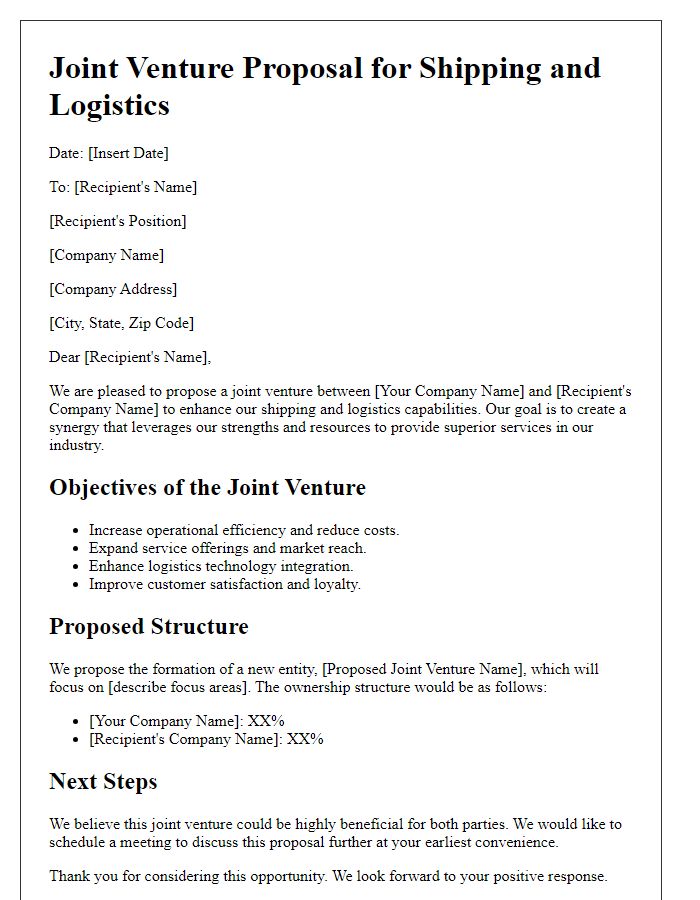
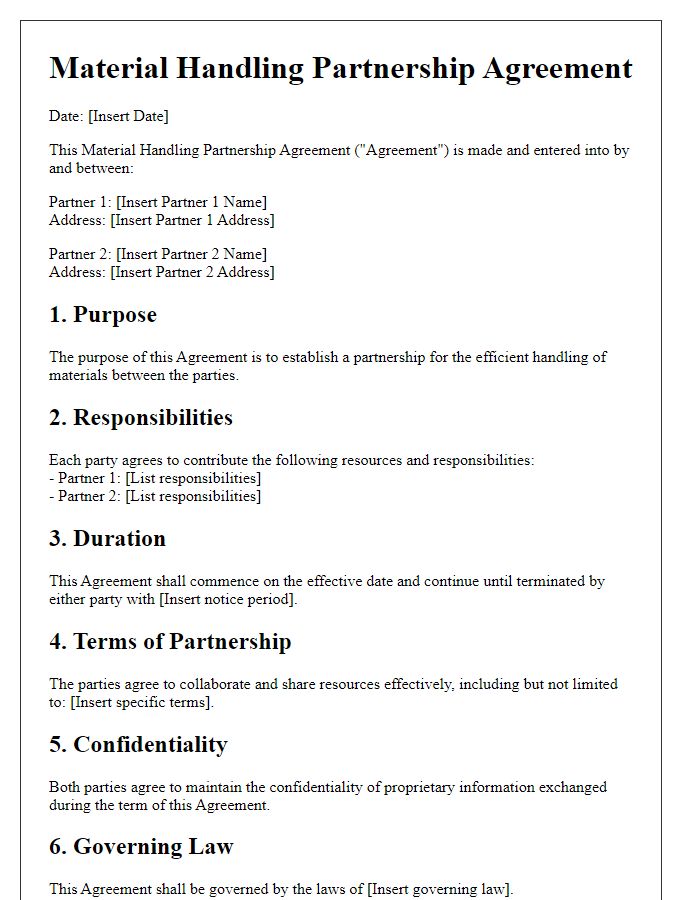
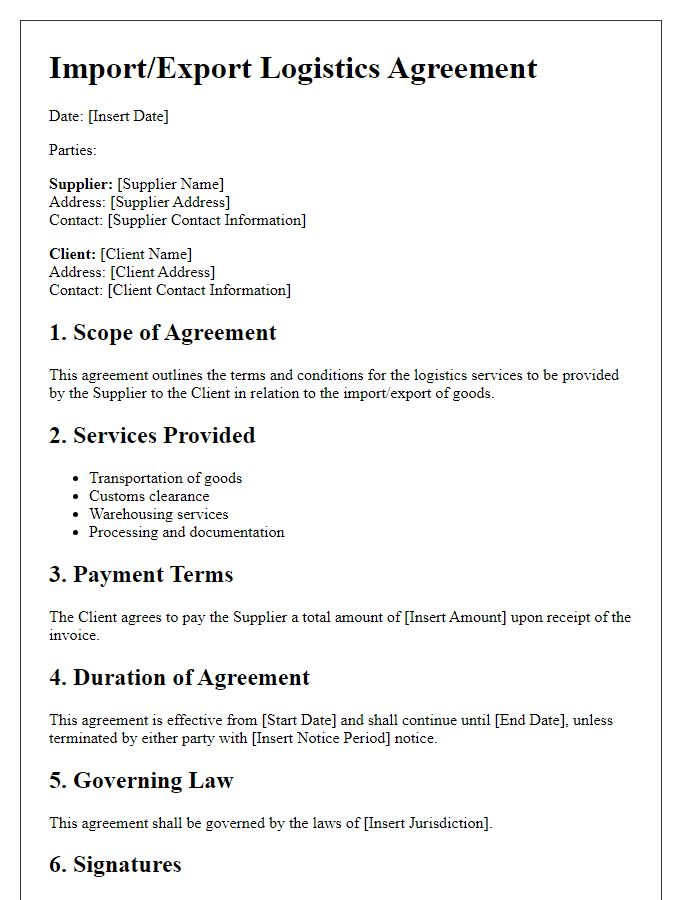
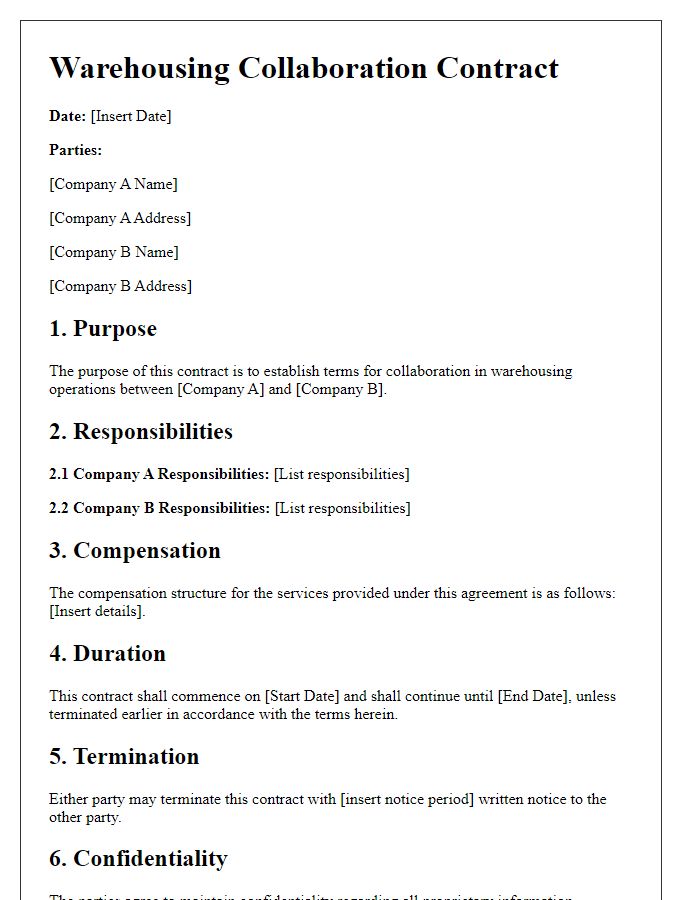
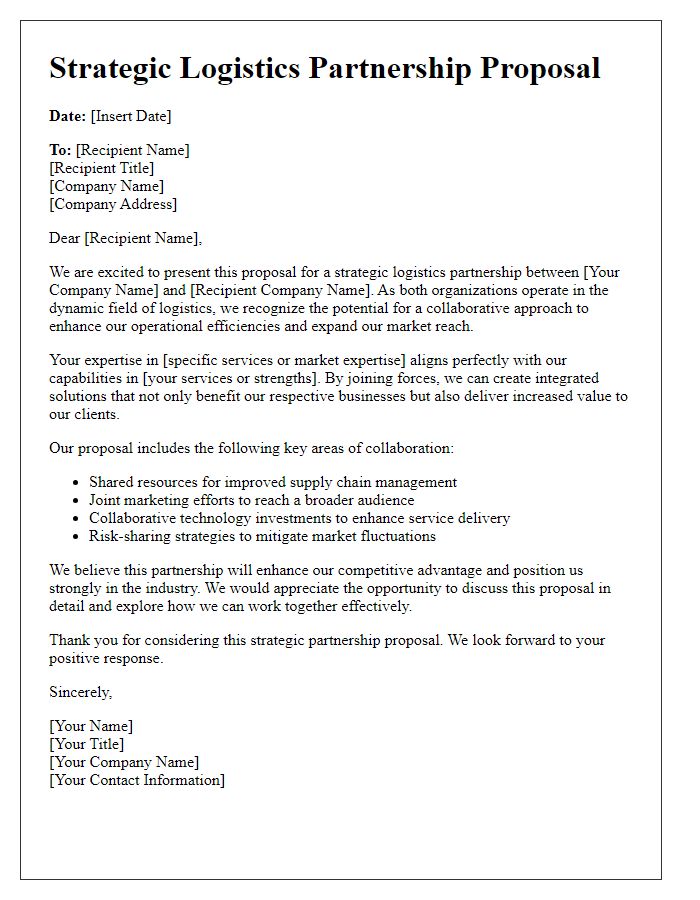

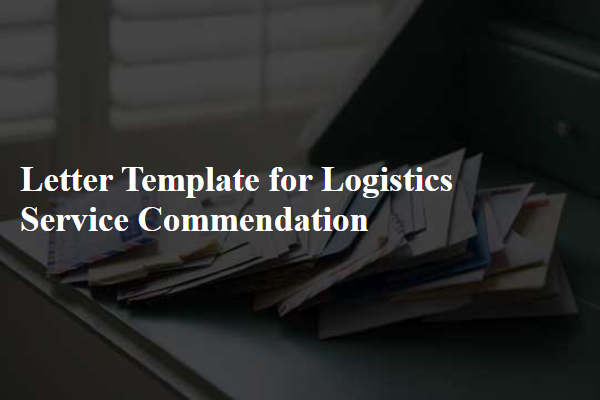
Comments